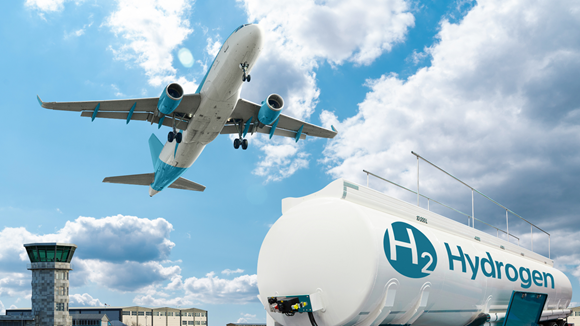The UK Civil Aviation Authority has launched a challenge for the aviation industry to help leverage the potential of hydrogen as a zero carbon emissions aviation fuel.
As hydrogen as an aviation fuel is at an early stage of development, the regulator says the sector does not yet have a comprehensive understanding of the risks to aviation safety and the right pathway to certification.
The CAA aims to address these challenges through its new Hydrogen Challenge project, which will use a ‘regulatory sandbox’ approach to ensure regulation is fit for purpose and reduce the barriers associated with the introduction of hydrogen fuel.
This will facilitate collaboration with industry and academia to improve understanding of hydrogen-related risks in aviation, identify gaps in policies, and propose new recommendations to develop net zero policies which will allow for increased regulatory readiness, reduced risk of failure and improved collaboration, the regulator said.
Sophie O’Sullivan, head of future safety and innovation for the UK Civil Aviation Authority, said: “The project will help facilitate efforts to move towards a net zero aviation sector by supporting the industry to explore how feasible the introduction of hydrogen is and how we can make sure regulation is fit for purpose.
“Enabling innovation while maintaining safety is a key part of our work and this challenge is a clear example of our collaborative approach to shaping the future of aviation.”
Introducing hydrogen propulsion is key to achieving the UK government’s Jet Zero strategy, which aims to achieve net zero carbon emissions for the aviation industry by 2050, and is also a key deliverable for the CAA’s sustainability strategy.
The Hydrogen Challenge, which will run until February 2025, is funded with nearly £940,000 from the Regulators’ Pioneer Fund, which is overseen by the Department for Science, Innovation, and Technology.
It is a grant-based fund to enable UK regulators and local authorities to help create a regulatory environment that encourages business innovation and investment.
To coincide with the launch of the new project, the CAA will soon open applications for a new ‘regulatory sandbox’ to assist applicants to run hydrogen trials. This means allowing the regulator to test the technology in a controlled environment to maximise regulatory readiness.
Airbus, along with easyJet, Rolls-Royce and others, formed the Hydrogen in Aviation (HIA) alliance in September, which aims to position Britain at the forefront of hydrogen-powered flying.
In response to the launch of the project, an Airbus spokesperson said: “Hydrogen is going to be a real game changer when it comes to decarbonising the aviation industry, and we are working around the clock to mature the aircraft technologies needed to deliver a commercial hydrogen powered aircraft by 2035.
“Simultaneously, we are working with [the] industry to ensure the ecosystem is ready, including the right regulatory framework. It’s about everyone coming together to solve the challenges, bringing us closer to decarbonised flying.”
Image credit: UK Civil Aviation Authority



